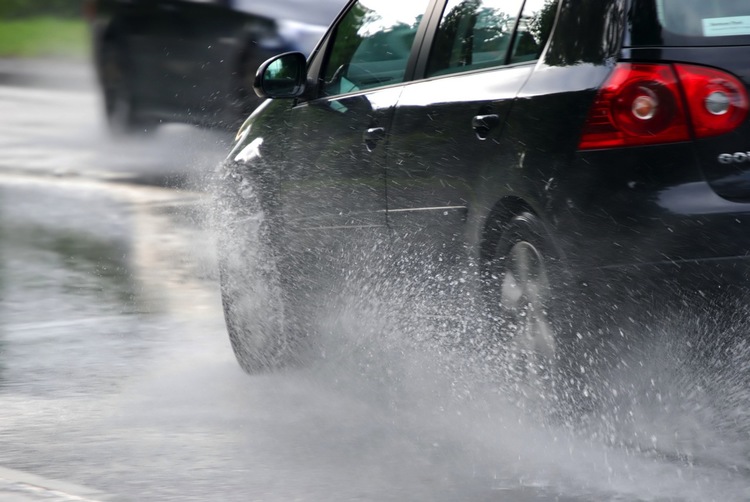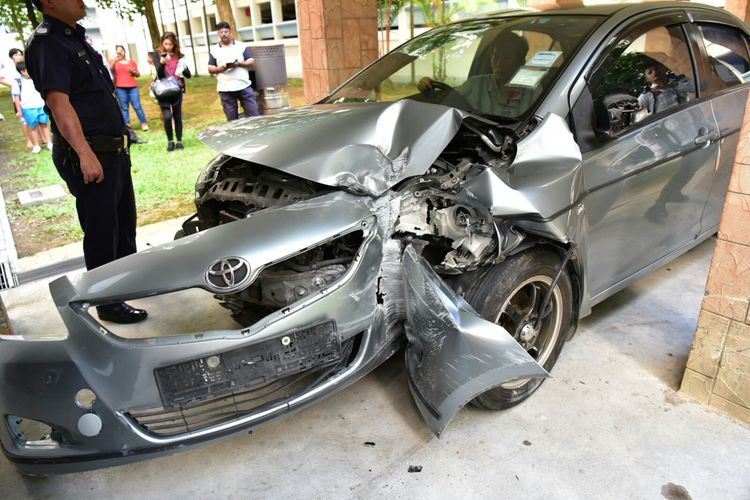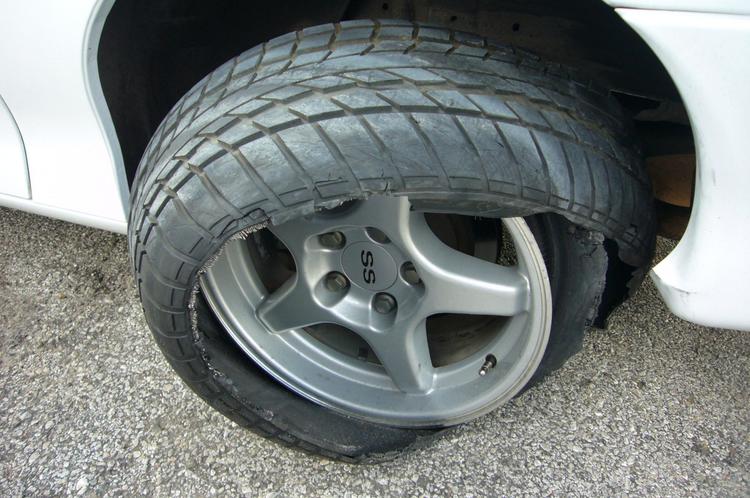Car Emergencies and What to Do When You Get in One
 (Photo Credit: Wikimedia Commons)
(Photo Credit: Wikimedia Commons)
Within the last year between 2015 and 2016, a whopping 152 people were killed in car accidents across the island. While it has dropped significantly lower as compared to previous years, we always have to be prepared for the worst.
Here's what to do if you ever get into a car accident.
1. Fishtailing
 (Photo Credit: Oponeo)
(Photo Credit: Oponeo)
Fishtailing describes the lost of control of your rear tyres' traction, this happens when you jerk your steering wheel abruptly to avoid hitting something. When this happens, do not hit the brakes! Your rear wheels will lose more traction, which can greatly impact your loss of control. Lightly tap on the accelerator, turn the wheel, and drive into a safe space to regain control of your vehicle
2. Skidding
 (Photo Credit: Jeff Wong)
(Photo Credit: Jeff Wong)
A thin layer of water on the road can send your car skidding in an unexpected direction. The layer of water builds between the wheels and the road surface, which can lead to loss of traction. Again, rule of thumb - don't hit the emergency brakes, this will throw the weight of the car to the rear and make matters worse. To counter skidding, gently tap on the brake pedal, no sudden movements - keep to a safe space.
3. Brake Failure
 (Photo credit: Channel NewsAsia)
(Photo credit: Channel NewsAsia)
In September, 2016, a Toyota ended up at the foot of an HDB block in Woodlands after he hit the accelerator and could not brake in time. For situations similar to this, it could be due to a couple of circumstances - the wear and tear of your brake pads or loss of brake pressure. As a preventive measure, always be sure to service your car regularly. However, if this ever happens, do not forget your emergency brakes. Shifting your drive to neutral and using your hand or foot brakes can always get you out of a serious bind.
4. Engine Overheating
 (Photo credit: Auto Service)
(Photo credit: Auto Service)
Pay close attention to your engine's temperature. Whenever the car's cooling system fails, the engine (obviously) overheats. Turn up the drama and this can cause some serious damage to you and others around you. No need to panic though, quickly pull over to the side of a road and let your engine cool off before checking. Unless you're a car mechanic, do not try fixing the matter yourself because you can get seriously burned.
5. Tyre Blowout
 (Photo credit: Istech)
(Photo credit: Istech)
The loss of control of your vehicle is always a serious issue, and this can happen during a tyre blowout. More often than not, tyre blowouts occur because tyres are under inflated, so check and carefully maintain your tyres. What happens when you're experiencing it though? Keep calm and maintain a firm grip on your steering wheel. Again, do not slam the brakes immediately. Tap the gas, to regain control and then, gently depress your brake pedal to slow down. Drive to a safe zone and call for tow.
Here are some emergency numbers to keep in your phonebook:
| Fire & Ambulance | Tel: 995 |
| Non-Emergency Ambulance |
Tel: 1777 |
| Traffic Police | Tel: 6547 0000 |
| Fire Hazard Reporting |
Tel: 1800 280 0000 |
| Island Recovery Services (Towing, break-down assistance) | Tel: 6747 7400 |
I want to find the most affordable car insurance plan within 24 hours!
Read more: Motorist Unveils Road Assist, A Smarter Way to Get Help on the Road
Download the new Motorist app now. Designed by drivers for drivers, this all-in-one app lets you receive the latest traffic updates, gives you access to live traffic cameras, and helps you manage LTA and vehicle matters.

